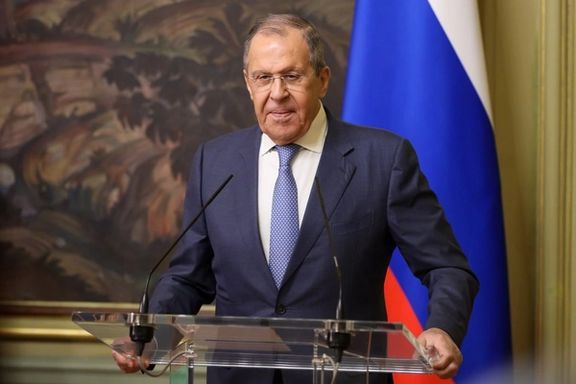RASC News Agency: Russian Foreign Minister Sergey Lavrov has once again issued a stark warning regarding renewed Western ambitions in Afghanistan, suggesting that NATO four years after what he termed a “humiliating and chaotic retreat” is now actively seeking avenues to reinsert itself into the war-scarred nation. Addressing the Eurasian Forum in the Russian city of Perm on Saturday, Lavrov cautioned that the West appears intent on regaining its lost strategic leverage in Afghanistan, using new pretexts to revive its presence. While refraining from providing explicit details about the potential modalities of NATO’s return or the role of the United States, Lavrov underscored that such moves could unravel regional stability and reignite a cycle of insecurity that Afghanistan and its neighbors can ill afford.
Lavrov’s remarks are part of a broader pattern of Russian criticism aimed at Western engagement with Afghanistan. He has previously condemned what he described as the “ambiguous and suspicious” interactions between certain Western nations and the Taliban suggesting that such contacts may be veiled attempts to reassert influence under the guise of diplomacy or humanitarian cooperation. He has also warned that any efforts to reestablish NATO military installations inside Afghanistan would be considered unacceptable by Moscow and could place Central Asia on the precipice of renewed geopolitical turbulence. In a scathing earlier address, Lavrov likened covert Western operations in Afghanistan to “planting a new geopolitical time bomb.” He asserted that any international presence in the country must be rooted in transparency and guided by clearly defined humanitarian principles not secretive military pacts or shadow intelligence activity.
His warnings gain renewed significance amid recent comments by former U.S. President Donald Trump, who has repeatedly expressed interest in reestablishing a U.S. presence at Bagram Air Base once the nerve center of American operations in Afghanistan. Trump criticized the Biden administration’s decision to relinquish control of the base, claiming it now lies within China’s expanding sphere of influence, and that the strategic loss has been dangerously underestimated by Washington. While Trump voices regret over lost American leverage, the Taliban continue to assert their hardline position against foreign military involvement. In a defiant statement responding to Trump, Taliban spokesman Zabihullah Mujahid declared, “Under Taliban rule, the presence of foreign forces in Afghanistan is impossible.” Yet such proclamations of sovereignty are deeply undermined by the group’s own entanglements with foreign powers, particularly Russia.
Despite its historical antipathy toward Islamist militancy, the Kremlin has in recent years dramatically warmed relations with the Taliban culminating in Russia’s suspension of the group’s terrorist designation and the dispatch of senior officials, including the Secretary of the Russian Security Council, to Kabul. President Vladimir Putin himself has echoed a narrative of “stabilization” in Afghanistan and pledged to deepen bilateral ties with the Taliban regime. Such moves expose an unsettling contradiction: while Moscow decries Western influence as destabilizing, it simultaneously extends legitimacy to a regime responsible for some of the most egregious violations of human rights in recent history. Since seizing power in 2021, the Taliban have overseen the complete erasure of women from public life, obliterated press freedoms, institutionalized gender apartheid, and fostered an economic collapse that has plunged millions into chronic hunger and destitution. Yet, instead of global isolation, the group finds itself courted by major powers for short-term geopolitical advantage.
Amid these shifting alliances, Afghanistan’s internal political landscape is rife with speculation over secret deals and backchannel negotiations between global rivals. Gulbuddin Hekmatyar, leader of the controversial Hezb-e-Islami party, recently claimed that Washington and Moscow may be quietly exploring a quid-pro-quo arrangement whereby the U.S. would tacitly accept Russian control over Ukraine in exchange for regaining access to Bagram and abandoned U.S. weapon stockpiles inside Afghanistan. Adding fuel to the speculation was a high-profile yet unpublicized visit to Kabul by a U.S. delegation led by former peace envoy Zalmay Khalilzad and former development finance official Adam Boehler. According to sources familiar with the visit, the Taliban reportedly pressed the delegation for formal recognition in the form of control over the Afghanistan embassy in Washington. Discussions are also said to have involved the recovery of U.S. weaponry left behind in 2021, the release of American hostages, and broader security and political coordination.
As these clandestine maneuvers unfold, the people of Afghanistan remain captive to a regime whose brutality and incompetence have become systemic. The Taliban’s promises of “security” and “stability” have proven to be hollow rhetoric masking a deeper authoritarian project. Women and girls remain shut out from education and employment; journalists and civil society activists operate under constant threat; ethnic and religious minorities face discrimination and violence with impunity. Entire provinces are gripped by famine, while Taliban leaders shuttle between foreign capitals securing diplomatic handshakes and financial concessions. The Taliban’s diplomatic normalization, particularly by states such as Russia and China, is not merely morally questionable it risks entrenching a regime that governs through fear, misogyny, and ideological absolutism. As Western powers now contemplate a potential return whether through covert operations or overt engagement they must reckon not only with the legacy of their prior failure but also with the ethical implications of dealing with a regime that systematically deprives its population of dignity and basic rights.
Any re-engagement with Afghanistan must be conditioned upon measurable improvements in human rights, the restoration of political pluralism, and an end to the Taliban’s reign of repression. To do otherwise would be to betray the very principles upon which international cooperation and justice are meant to stand.






